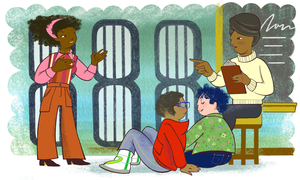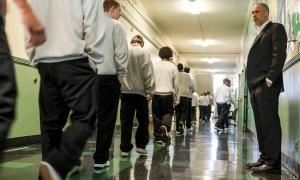author
2,006 Results
author
article
A Different Kind of Pedagogy

Process drama, which encourages students to play with inquiry, brings content to life for students. Here’s how it looked in one high school classroom in Ohio.
article
A Trauma-informed Approach to Teaching Through Coronavirus

Experts from the National Child Traumatic Stress Network share their recommendations for educators supporting students during the COVID-19 crisis.
article
Where's George?
Primary students learn the value of questioning their social studies book.
article
Fear and Rewriting Trayvon: Educator Thoughts
Educators can play a real role in ensuring the Trayvon Martin tragedy does not happen to other children. It starts with how we perceive black boys.
article
We ♥ Art!

Arts programs battle budget cuts and perceptions that they’re “extra” classes. But they’re the main reason many struggling students stay focused on school.
article
Suspending Hope

Schools in Maryland and Connecticut are rethinking suspension policies and practices.
article
Learning From the Inside

Educators working in locked facilities have a lot to offer—to their students and to their public-school colleagues.
article
Ending Curriculum Violence

Yes, curriculum can be violent—whether you intend it or not. Here’s what it looks like and how you can avoid it.